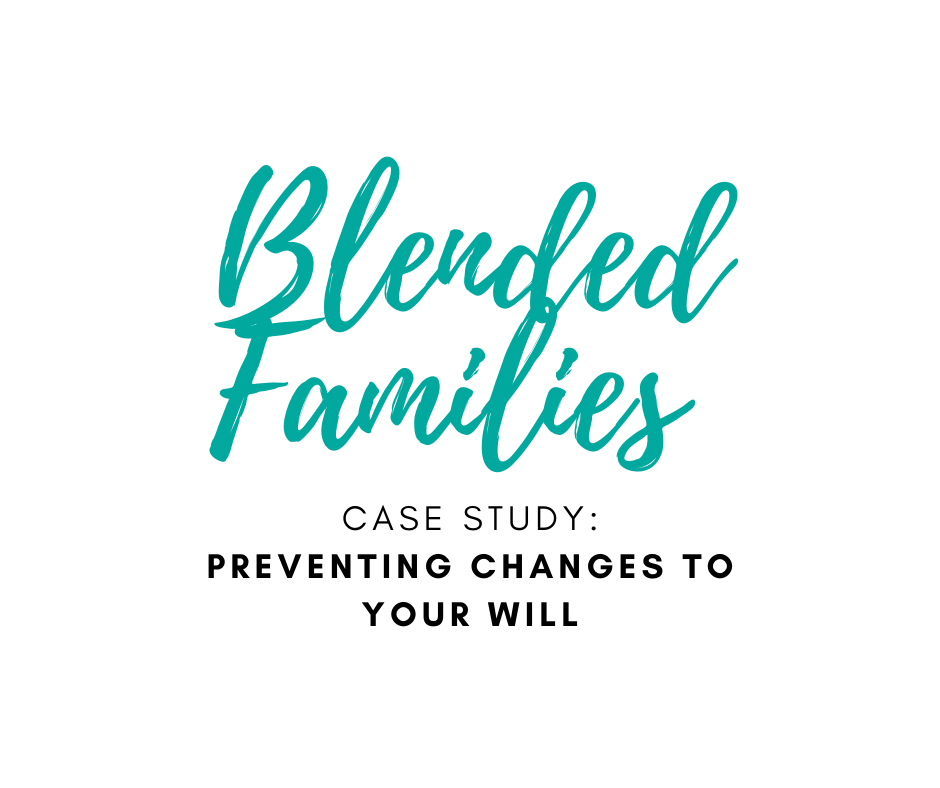The number of inheritance disputes has been rising over the last few years and reached an all time high in 2019 up by 47% on the previous year. With this in mind, we strongly recommend taking a few moments to consider whether there are some steps that you can take to try to prevent such a dispute after your death.
The following case studies, involving the Vine family, illustrate some of the issues which typically arise in a blended family.
Case Study
Gwen Elm
Background
Gwen Elm has recently moved in with her partner, Ben, after selling her home.
Gwen has a great relationship with her son Eric, who supported her throughout her divorce from his father and who has continued to do so ever since. Her daughter Kate told Gwen that she never wanted to speak to her again when Gwen started seeing Ben after the divorce. Gwen found this very distressing and has had a very difficult relationship with Kate since that time. She rarely sees her now but reached an agreement with Kate that she would give her some money each year on the basis that Kate would use it towards the children’s school fees.
Selling her home to move in with Ben has made her realise that she ought to get a Will in place, but after many sleepless nights thinking about it, she still hasn’t been able to decide how to split things between her children. On one hand she doesn’t think it’s right to cut Kate out entirely, but she feels that Eric has done so much for her that he deserves to receive more and that Kate has had a lot of money from her for the school fees. She isn’t even sure if she would be allowed to leave Kate out of her Will completely, in any event.
Her partner, Ben, can see how much that this is playing on Gwen’s mind and suggests that the best thing to do is to get some proper advice. Gwen calls her solicitor and gives her a brief outline of the situation and they arrange to meet up to discuss it in more detail.
Issues
Gwen’s first question in the meeting is “Do I have to leave Kate anything?” Her solicitor explains that she isn’t under any obligation to leave anything to her children or to anyone else for that matter and that she is allowed to leave her estate to anyone she chooses.
The solicitor follows up by saying however that because Kate is her daughter, she would have a right to challenge the Will if she wasn’t happy with it. She also points out that as Gwen has helped Kate with the school fees over the years this could show that she was in fact supporting Kate financially.
The solicitor also asks Gwen about her relationship with Ben. Gwen explains that whilst they have been in a relationship for over 20 years they have only been living together for 3 months.
Her solicitor asks whether she intends to leave anything to Ben and Gwen says that as he has his own money, she hadn’t really thought about it. Her solicitor explains that again Ben might have a claim against her estate if they are still living together in two years time.
Solutions
Her solicitor explains that if she were to die without having made a Will then the law sets out who will inherit from her and in what amounts. If she doesn’t like the result that this will produce the only way to alter this would be to make a Will.
They then discuss the claims that Kate or Ben could bring against her estate if they did not feel that it made adequate provision for them and the best way to provide for them in the Will to try to prevent any challenges.
As she has thought about not leaving Kate or Ben anything from her estate or leaving her estate in unequal shares between her children, her solicitors suggests talking to her family and explaining her decisions. As the lawyer explains sometimes disputes arise because peoples’ expectations don’t match the reality and they don’t understand the reasoning behind the decision that was made.




